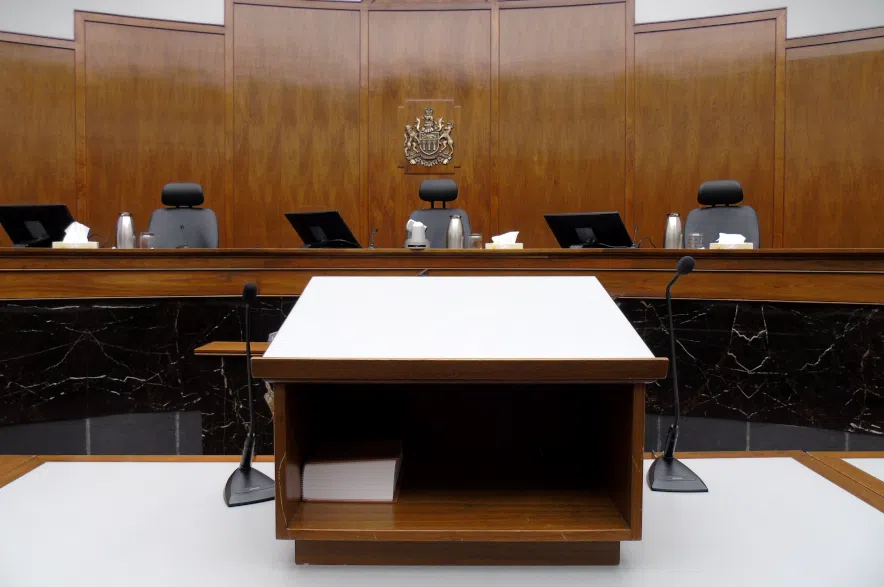Vincent Picken will head back to court for a new trial on his second-degree murder charge in the death of Shaun Holmes after a decision from the Court of Appeal for Saskatchewan.
The court issued its ruling last week, saying Chief Justice M.D. Popescul, the trial judge, erred when he didn’t instruct the jury on the defence of provocation.
Read more:
- Regina 2022 drive-by killings: New murder trial for Dillon Whitehawk
- Court of appeal rules taxpayers not on hook for deputy reeve’s legal bills
- Sask. man’s sentence doubled for sex assault of grandchild
The killing happened in 2020 in Moose Jaw. Court heard Picken went to Holmes’ apartment thinking his girlfriend’s bicycle was there and wanting to get it back. Picken drank alcohol and used meth beforehand.
The two began fighting after Holmes insulted Picken’s girlfriend. The fight started in a back bedroom, and Picken said he ran to the kitchen and tried to get out the back door, but was caught by Holmes. He said Holmes was kicking and punching him, then ordered his dog to bite Picken.
Picken told court that he panicked and feared for his life, and he started swinging at Holmes with a knife that he’d grabbed from the bedroom. At some point the attack stopped and Holmes ran out of the apartment. He died of his injuries outside the building a short time later – 28 cut-like wounds and seven stab wounds, including two to the neck that ultimately caused Holmes’ death.
Picken’s lawyer asserted that he was acting in self-defence, and during the trial the Crown didn’t have any problems with the judge explaining that kind of defence and giving instructions to the jury. But Picken’s lawyer also wanted the judge to give instructions to the jury about the defence of provocation.
In Canadian courts, provocation requires answers to two questions: whether the conduct of the victim amounted to provocation and whether the accused was deprived of the power of self-control by those actions.
The conduct has to be a wrongful criminal act that could be punishable by up to five years or more in jail, and would be enough to deprive an ordinary person of the power of self-control if the accused acted on it before their passion had time to cool. If provocation is found in a case, it speaks to culpability and could reduce a second-degree murder conviction to manslaughter.
Popescul decided not to give instructions to the jury about provocation, saying there was no reality to the defence of provocation. He said the argument of self-defence is one of a reasonable response to fear, while provocation is an emotional response prompted by anger, and the two aren’t compatible.
However, in a unanimous decision, the appeals court said there is no rule against putting an alternative theory of defence to a jury that is factually incompatible with the defence’s principal theory.
The appeals court also said anger is not the only emotional response that could trigger a provocation defence, pointing out that Picken claimed he was in “panic mode” once the dog was introduced into the fight.
Picken was convicted in late 2023, and in early 2024 was sentenced to life in prison without possibility of parole for 12 years. The Crown had asked for 17 years, while the defence asked for the minimum, 10 years.
After the appeal decision, the case will go back to court for a new trial, and Picken will be held in custody until then.











